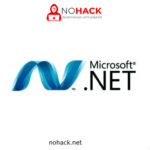
Critical .NET Migration Deadline: Update Before January 7
January 7, 2025
Gorilla Botnet Attacks 100 Countries with More Than 300,000 DDoS Attacks
January 10, 2025In a recent cybersecurity alert, researchers have identified several malicious packages on the npm registry impersonating the Nomic Foundation’s Hardhat tool a widely used development environment for Ethereum software. These counterfeit packages are designed to steal sensitive data from developers, including private keys, mnemonic phrases, and configuration details.
Identified Malicious Packages:
- nomicsfoundations
- @nomisfoundation/hardhat-configure
- installedpackagepublish
- @nomisfoundation/hardhat-config
- @monicfoundation/hardhat-config
- @nomicsfoundation/sdk-test
- @nomicsfoundation/hardhat-config
- @nomicsfoundation/web3-sdk
- @nomicsfoundation/sdk-test1
- @nomicfoundations/hardhat-config
- crypto-nodes-validator
- solana-validator
- node-validators
- hardhat-deploy-others
- hardhat-gas-optimizer
- solidity-comments-extractors
Notably, the package @nomicsfoundation/sdk-test has been downloaded over 1,000 times since its publication in October 2023, indicating a potentially significant impact on the developer community.
Attack Methodology:
Once these malicious packages are installed, they exploit the Hardhat runtime environment by invoking functions such as hreInit() and hreConfig() to collect sensitive information. This data is then transmitted to attacker-controlled servers using hardcoded keys and Ethereum addresses, facilitating streamlined exfiltration.
Recent Related Threats:
This discovery follows the identification of another malicious npm package, ethereumvulncontracthandler, which masqueraded as a library for detecting vulnerabilities in Ethereum smart contracts but instead deployed the Quasar Remote Access Trojan (RAT).
Additionally, there have been instances of malicious npm packages utilizing Ethereum smart contracts for command-and-control (C2) server address distribution, effectively incorporating infected machines into a blockchain-powered botnet known as MisakaNetwork. This campaign has been linked to a Russian-speaking threat actor identified as “_lain.”
Implications for the Developer Community:
These incidents underscore the complexities within the npm ecosystem, where packages often depend on numerous dependencies, creating a convoluted structure that can be exploited by malicious actors. The sheer volume of dependencies makes comprehensive security reviews challenging, providing opportunities for attackers to introduce malicious code.
Recommendations:
Developers are advised to exercise heightened vigilance when incorporating npm packages into their projects. Implementing the following best practices can enhance security:
- Verify Package Authenticity: Always ensure that packages are sourced from official and reputable publishers.
- Review Dependencies: Conduct thorough reviews of both direct and indirect dependencies to identify potential risks.
- Monitor for Updates: Stay informed about the latest security advisories related to npm packages and apply updates promptly.
- Utilize Security Tools: Employ automated security tools designed to detect and prevent the inclusion of malicious packages in your development environment.
By adhering to these practices, developers can mitigate the risks associated with malicious npm packages and safeguard their projects against potential threats.





